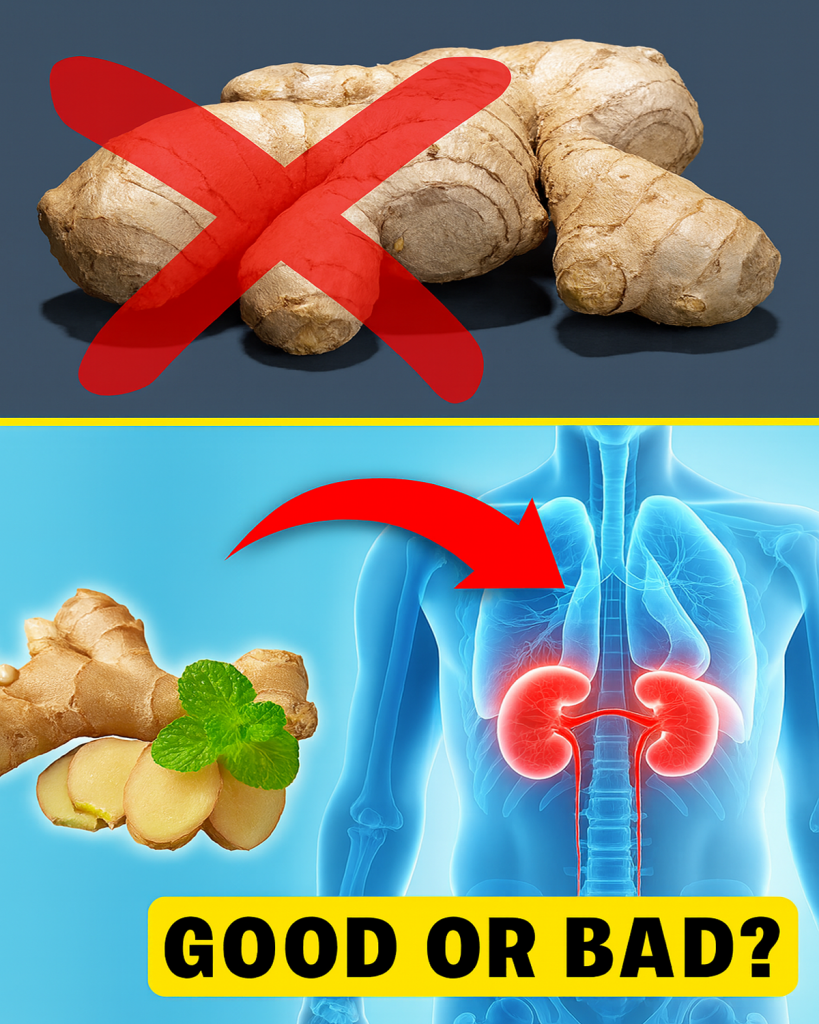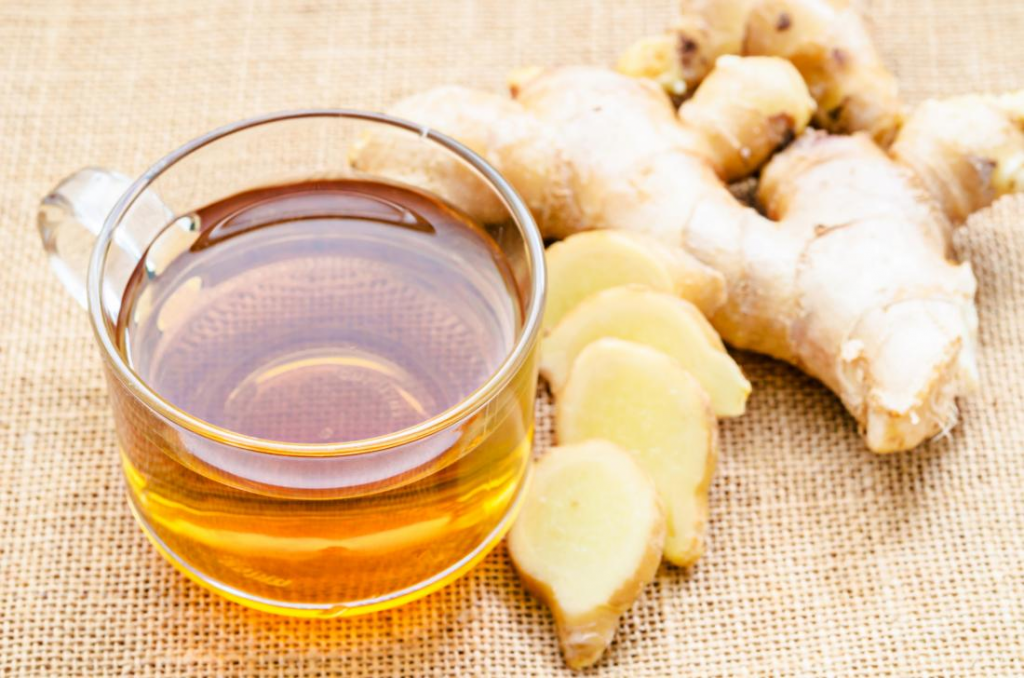Ginger is one of the world’s most widely used spices and traditional remedies. From soothing nausea to easing digestion, it has earned a reputation as a “miracle root.” In fact, global consumption of ginger has grown by nearly 40% over the last decade, making it a staple in both kitchens and natural medicine cabinets. But here’s what most people don’t realize: ginger isn’t always safe for everyone.
While it can be incredibly beneficial for many, certain health conditions may worsen when ginger is consumed regularly or in large amounts. Ignoring these precautions can lead to unexpected side effects such as increased bleeding risk, worsened digestive discomfort, or blood sugar fluctuations.
So, should you stop using ginger altogether? Not necessarily. But it’s important to know when to avoid it and when to approach it with caution. In this article, we’ll explore the specific health problems where ginger may do more harm than good, supported by scientific findings, medical insights, and real-life examples. You’ll also discover safer alternatives and practical advice for everyday life.

Why Ginger Is Both a Remedy and a Risk
Ginger contains active compounds called gingerols and shogaols, which are responsible for its warming, anti-inflammatory, and digestive-supporting properties. These same compounds can also interfere with blood clotting, stomach acid levels, or blood sugar regulation. That’s why, depending on your health profile, ginger may act as either a friend or a foe.
Understanding both sides of ginger helps you make informed choices about whether it belongs in your diet or medicine routine.
Health Conditions Where Ginger May Be Harmful
1. Bleeding Disorders or Blood Thinners

Ginger can thin the blood and reduce clotting. While this is helpful in preventing clots for some, it poses risks for people with:
- Hemophilia or other bleeding disorders
- Those taking blood-thinning medications such as warfarin, aspirin, or clopidogrel
- Individuals preparing for surgery
Real-life example: A patient scheduled for dental surgery was advised to stop all herbal remedies a week before the procedure. She ignored the advice, continued drinking ginger tea, and experienced prolonged bleeding during recovery.
2. Gallstones and Gallbladder Issues
Ginger stimulates bile production, which supports digestion. However, for people with gallstones or gallbladder inflammation, this stimulation can cause painful contractions.
If you’ve ever felt sharp abdominal pain after eating fatty foods or spicy teas, ginger may worsen that reaction.

3. Certain Heart Conditions
Ginger may lower blood pressure and improve circulation. But for individuals with low blood pressure, arrhythmia, or those on heart medications, ginger could interfere with treatment. Sudden drops in blood pressure or changes in heart rhythm can be dangerous.
4. Acid Reflux and Stomach Ulcers
Though ginger is commonly used for nausea, its spicy compounds may irritate the stomach lining for some people. Those with:
- Gastroesophageal reflux disease (GERD)
- Gastritis
- Peptic ulcers
may experience worsening heartburn, discomfort, or burning sensations after consuming ginger tea or supplements.

5. Diabetes and Blood Sugar Instability
Studies show ginger can lower blood sugar. While this can benefit many, it becomes a risk for people already on diabetes medications. Combining the two may cause blood sugar levels to drop too low, leading to dizziness, fatigue, or even hypoglycemia.
Case study: A middle-aged man with type 2 diabetes included daily ginger shots in his diet. Within a week, he experienced shaking and sweating episodes, only to realize his blood sugar had dropped dangerously due to double impact from both his medication and ginger.
6. Pregnancy Risks
Ginger is often used for morning sickness, but in high doses, it may increase uterine contractions. For women with a history of miscarriage, bleeding, or complicated pregnancies, ginger supplements should only be taken under medical guidance.

How Much Ginger Is Too Much?
Moderation matters. For healthy adults, up to 3–4 grams per day of fresh ginger is generally considered safe. Problems typically arise with concentrated supplements or excessive daily consumption.
| Form of Ginger | Safe Daily Limit (approx.) |
|---|---|
| Fresh ginger | 3–4 grams |
| Dried ginger powder | 1 gram |
| Ginger tea | 1–2 cups |
| Supplements | Follow label or medical advice |
Always remember that dosage may vary based on age, health condition, and other medications.

Safer Alternatives to Ginger
If you need to avoid ginger but still want natural support for digestion or inflammation, here are some options:
- Peppermint tea: Gentle on the stomach and helps relieve bloating.
- Turmeric: Anti-inflammatory properties but less stimulating to the stomach lining.
- Chamomile: Calming for digestion and relaxation.
- Cinnamon: Supports blood sugar control without the same clotting risks.
Everyday Tips for Using Ginger Wisely
- Always inform your doctor if you’re taking ginger supplements, especially before surgery.
- If you’re on medications for the heart, blood sugar, or blood clotting, avoid self-prescribing ginger.
- Pay attention to your body. If you feel heartburn, unusual bleeding, or dizziness after consuming ginger, reduce intake or stop altogether.
- Consider rotating ginger with other herbs instead of making it a daily habit.

Conclusion
Ginger is powerful, but like any natural remedy, it’s not for everyone. Knowing when to avoid ginger is just as important as knowing when to embrace it. By paying attention to your health conditions and consulting your doctor, you can make safe choices that support your body rather than harm it.
Frequently Asked Questions
Can I drink ginger tea daily? For most healthy adults, yes. But if you have the conditions listed above, limit or avoid it.
Is ginger safe during pregnancy? Small amounts for nausea may help, but supplements or high doses should be avoided unless approved by a doctor.
What happens if I eat too much ginger? You may experience heartburn, stomach upset, or an increased risk of bleeding.
Disclaimer: This article is for educational purposes only. It is not intended to replace professional medical advice, diagnosis, or treatment. Always seek the advice of your physician or qualified health provider with any questions about your health.




